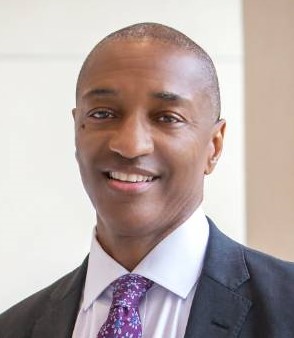The state of Louisiana has just 43% of its citizens fully vaccinated against COVID-19, but more than 82% of Louisiana State University’s community has completed dosing.

President William Tate IV credits both a proactive approach by the university and mandates for keeping cases low and vaccinations high. It has been so successful and such a contrast to numbers throughout the Bayou State that he is speaking today at a conference of business leaders with President Joe Biden.
“It is an honor to present our successful COVID mitigation strategies to President Biden and the COVID Response Team, and we are proud that our multi-tiered approach to protecting our students, faculty and staff has been recognized at such an incredibly high level,” Tate said. “Our strategies have worked [because of] a monthly testing protocol that monitors the presence of the virus on our campus, wastewater testing that allows us to intervene before an outbreak occurs, and a vaccine/testing mandate at Tiger Stadium to keep our fans safe, too. We are grateful for the privilege of celebrating how far we have come and sharing the game plan with others who might be able to benefit from the knowledge.”
The goal of the meeting is to discuss the Administration’s desire to have large businesses prove employees are vaccinated or are COVID-free through regular testing. Many of those who will attend, from Disney to Amtrak to Microsoft, already have mandates in place.
However, the vast majority of colleges and universities still don’t, despite news three weeks ago that the Pfizer/BioNTech vaccine received full approval from the U.S. Food and Drug Administration. Of the 4,000 or so accredited institutions of higher education in the United States, just over 1,000 have requirements and very few have signed on since the announcement.
Ohio Dominican University was one that did on Wednesday, mandating that by Nov. 15 all students, staff and faculty must have completed scheduled doses. Though 97% of instructors are vaccinated, less than 65% of its residential students said they are in a survey conducted by the university.
“ODU is taking this step because vaccines are the safest and most effective form of protection against COVID-19,” President Connie Gallagher, who is also a registered nurse, said in a statement. “The survey also found that 64% of respondents who indicated that they are not fully vaccinated do not intend to get the vaccine this fall. It is incumbent upon us as a university founded in faith, service, justice and commitment to the common good that we do everything possible to foster a culture of care and protect all members of our campus family.”
Mixed decisions, results
The start of the fall semester, while successful for some institutions, has been beset by outbreaks, shutdowns and protests—from one side or another—over vaccines and maskings.
Even on campuses that have vaccine and mask mandates, there has been resistance and ambivalence. More than 4,000 students at California State University at Sacramento were barred from coming to campus on Tuesday because they had not filed proof of vaccination with the university. Students at several institutions, including Creighton University late last week, have launched lawsuits saying bans restrict their rights.
CSU Sacramento said students who don’t comply and self-certify will be removed from taking courses on Sept. 27. But there isn’t an easy solution.
“It is straightforward for students to fix their status this week,” said Ed Mills, Vice President of Student Affairs. “All they need to do is go into their Student Center and self-certify their status by entering their vaccination information, declaring an exemption, or checking the box that they will not be accessing campus. Students who declare an exemption will receive immediate information on COVID testing.”
With the delta variant still very much a threat, leaders are strongly encouraging vaccinations and in some cases, taking preventive measures to slow transmission.
Brown University had to restrict campus gatherings and indoor dining this week after an alarming 82 COVID-positive asymptomatic cases came up in testing. Liberty, St. Lawrence, Duke and La Salle universities all have had to impose limits on students since they reopened, though some have relaxed them as numbers have waned. The University of Michigan’s success in fighting COVID means it no longer must turn to notifications in classrooms but can do so using general alerts through its Health & Safety team.
A lack of requirements has led to backlash from professors and/or students at the University of Illinois, University of Georgia and Penn State University. At Texas A&M University, where 20-year-old Kirstyn Katherine Ahuero recently died from COVID-19 complications, faculty have asked for stronger measures to prevent potential spread. During a meeting with faculty senate, President M. Katherine Banks told them the university could not impose mandates because of Gov. Greg Abbott’s order, according to The Eagle in College Station.
In states where bans on vaccine passports exist through executive order or legislation, large institutions are again increasing the incentives to try to encourage students. The University of Florida is giving the opportunity to win 60-inch flat-screen TVs, DSLR cameras, iPad Pros, meal plans and AirPods to students who get fully vaccinated by Oct. 15. The University of Oklahoma is continuing to pitch incentives such as scholarships to students but is also doing the same for employees, with potential $200 cash prizes and a number of gifts. There continues to be urgency from those institutions, if not mandates. Of the 534 tests for COVID-19 OU conducted last week, 11.25% came back positive.







